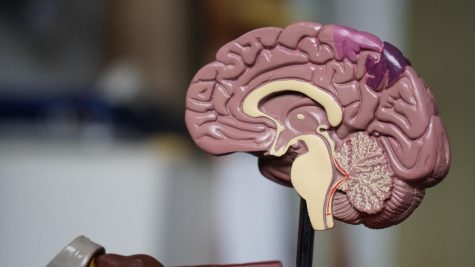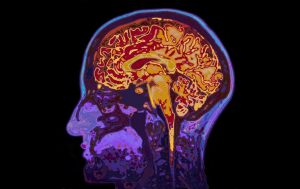How Does Learning a New Language Affect Your Brain?
How might your language elective be altering your neurochemistry and changing your life?
April 7, 2022
Most schools across the country mandate learning a second language in order to graduate, Darien High School included. It’s helpful when traveling to new places and applying for a job, as well as practically vital when applying to colleges, but how does learning a new language affect your brain?
New Language, New You?
There have been numerous studies suggesting a myriad of positive and generally fascinating neurological effects of learning a second language.
Interestingly enough, many bilingual people report a change in their personality when they speak another language.
Out of curiosity, I interviewed foreign language teacher Mr. Bruce Mitchell to not only get some insight into his personal experience with this phenomenon, but also to hear about his experience learning languages in general. Here were his responses to my questions.
Gregory Gatto: Do you speak any languages other than English in your personal life? If so, do you observe any sort of change in your personality between languages?
Mr. Mitchell: Yes, I do. I speak mainly French and German at home with my children, and Spanish one day a week. I also speak Spanish with my children’s babysitter every morning before work, though we do not say much to each other as I am in a rush. I asked my family, and they do not notice any personality changes when I speak a different language.
Although Mr. Mitchell was unable to personally vouch for the change in personality that some experience between languages, he still had several other interesting things to say about his relationship with foreign languages.
Gregory Gatto: How many languages do you speak?
Mr. Mitchell: I can speak, read, and write five languages as an educated adult. I can speak one more at an advanced level, but am out of practice. I have an intermediate level in three more. I can also read some ancient languages, one of them being Latin.
Gregory Gatto: How has learning new languages impacted your life, if at all?
Mr. Mitchell: I could write a book about this, but to put it succinctly, each language opens the door to a different world. Learning a new language and attaining a high level of proficiency has always been enriching and deeply rewarding socially, intellectually, and culturally.
Interesting Facts
When you learn a new language, your brain is rearranged and forms new pathways and connections. In 2012, a study investigated the significance of this remodeling by studying the brains of participants before and after three months of “intense language studies.” Results showed an increased volume of the hippocampus, and an increased cortical thickness of several areas associated with visuospatial processing and reasoning.

Intriguingly, young adults who were proficient in two or more languages performed better on attention tests than those who only spoke one. Learning a new language involves immense patience and attentiveness, so this might just be because those who manage to do so had above average attention spans to begin with.
Similarly, in a separate study, the intelligence and general reading abilities of 857 participants were examined in 1947, when they were all 11 years old. In 2008 and 2010, they were retested in their early 70s. Those who became bilingual performed significantly better than expected in those same metrics. This supports the original claim that the examined young adults performed better on attention tests due to their bilingualism.
One of the most significant impacts of learning a new language is its ability to slow the progression of dementia and other cognitive diseases like Alzheimer’s.
Some effects of bilingualism actually depend on the person’s first language. For example, native Japanese speakers cannot readily distinguish ‘r’ and ‘l’ when learning English because in their brains, both of these sounds activate the same area.
Similarly, there may be some connection between bilingualism and a greater ability to understand other people emotionally. The Atlantic suggests that bilingual children may develop greater empathy.

In The End
Despite the grueling nature of studying a second language, the benefit of increasing your neuroplasticity, attention span, and possibly emotional intelligence is undoubtedly worth it. Of course, as I alluded to earlier, doing so sets you up for job opportunities and allows you to apply to prestigious colleges. Hopefully, understanding some of these effects will make it easier to endure the struggles of your mandatory language elective.








